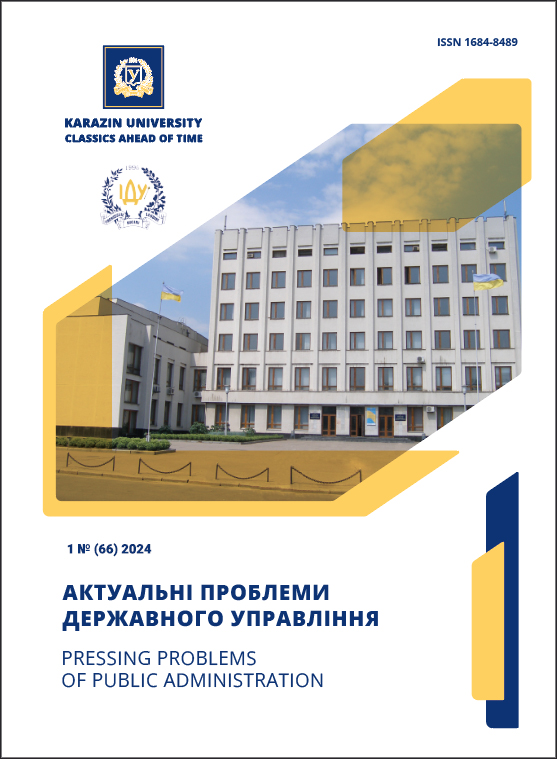The symbiosis of technology and regulation: how industry 5.0 redefines bank-state interaction for decades to come?
Abstract
This article explores the symbiosis of Industry 5.0 technologies and regulatory mechanisms that radically transform the interaction between the banking sector and public governance with a perspective extending to 2045. The research identifies key mechanisms of mutual influence between advanced technologies (artificial intelligence, distributed ledgers, quantum computing) and regulatory processes that define the evolution of banks from traditional financial intermediaries into integrated ecosystems of socio-economic development. The theoretical novelty of the study lies in substantiating the concept of «hybrid financial entities», in which technological infrastructure and regulatory processes function as inseparable components of a unified self-adapting system based on principles of proactive compliance and algorithmic trust. The paper demonstrates that the transformation of public governance models in the financial sector is moving from hierarchical structures towards platform solutions («Government as a Platform», GaaP), creating preconditions for regulatory landscape fragmentation and the formation of «regulatory microclimates».
The integration of ESG principles into banking regulation redefines the very nature of financial intermediation, transforming banks into institutions of sustainable development. Special attention is paid to ensuring «digital sovereignty» and «safe degradation» of financial systems in conditions of geopolitical instability and risks of global conflicts. The study proposes a methodological table of banking institutions’ characteristics within four scenarios of financial system evolution: «Technological Hegemony», «Regulatory Revenge», «Decentralised Autonomy», and «Hybrid Convergence». The paper argues that the most probable scenario for banking sector evolution by 2045 is «Hybrid Convergence», characterised by a multi-level financial system where centralised and decentralised elements, state regulation and market self-regulation coexist within a unified ecosystem.
Downloads
References
Accenture. (2023). Banking Top 10 trends for 2023. URL: https://surl.gd/optids
Arner, D.W., Auer, R., & Frost, J. (2020). Stablecoins: risks, potential and regulation (BIS Working Papers No. 905). URL: https://www.bis.org/publ/work905.pdf
Auer, R. (2022). Embedded supervision: how to embed regulation into decentralized finance (CESifo Working Papers No. 9771). URL: https://surl.lu/ukhxjr. https://doi.org/10.2139/ssrn.4127658
Cao, X., Han, B., Huang, Y., & Xie, X. (2022). Digital Transformation and Risk Differentiation in the Banking Industry: Evidence from Chinese Commercial Banks. Asian Economic Papers, 21(3), 1–21. DOI: https://doi.org/10.1162/asep_a_00853
Chiaramonte, L., Dreassi, A., Girardone, C., & Piserà, S. (2021). Do ESG strategies enhance bank stability during financial turmoil? Evidence from Europe. The European Journal of Finance, 28(12), 1173–1211. DOI: https://doi.org/10.1080/1351847X.2021.1964556
Deloitte. (2023). How Artificial Intelligence is Transforming the Financial Services Industry. URL: https://surl.li/pcxaaf
Diener, F., & Špaček, M. (2021). Digital Transformation in Banking: A Managerial Perspective on Barriers to Change. Sustainability, 13(4), Article 2032. DOI: https://doi.org/10.3390/su13042032
DXC Technology. (n.d.). The ESG challenge in banking is real – and massive. URL: https://surl.li/ejcdvf
European Banking Authority. (2021). Report on the use of RegTech in the EU financial sector. URL: https://surl.li/micaow
European Banking Authority. (2025). Guidelines on the management of Environmental, Social and Governance (ESG) risks. URL: https://surl.li/ydwwxe
European Commission. (2024). Regulation (EU) 2024/1689 laying down harmonised rules on artificial intelligence (Artificial Intelligence Act). URL: https://surl.lu/whogqt
Federal Bureau of Investigation Internet Crime Complaint Center (IC3). (2022). Internet Crime Report 2021. URL: https://surl.lu/ykipun
Federal Bureau of Investigation Internet Crime Complaint Center (IC3). (2023). Internet Crime Report 2022. URL: https://surli.cc/xbapyz
FINRA. (2023). Quantum Computing and the Implications for the Securities Industry. URL: https://surli.cc/kgabbd
Bouattour, A., Kalai, M., & Helali, K. (2024). The non-linear relationship between ESG performance and bank stability in the digital era: new evidence from a regime-switching approach. Humanities and Social Sciences Communications, 11(1), 1445. DOI: https://doi.org/10.1057/s41599-024-03876-8
KPMG. (2023). Banking and capital markets sector leans into ESG, bolstering leadership, investment and data management. URL: https://surl.li/mdnuzd
Kunaratskul, T., Reslow, A., & Singh, M. (2024). Implications of Central Bank Digital Currencies for Monetary Operations (Fintech Notes 2024, 007). International Monetary Fund. DOI: https://doi.org/10.5089/9798400289019.063
McCarty, J. (2022). The regulation of RegTech and SupTech in finance: ensuring consistency in principle and in practice. Journal of Financial Regulation and Compliance, 30(2),
-199. DOI: https://doi.org/10.1108/JFRC-08-2021-0087
McKinsey & Company. (2024). Global Banking Annual Review 2024: Creating Value in Times of Change. URL: https://surl.li/hdpnoc
Menicucci, E. (2025). ESG Integration in the Banking Sector: Navigating Regulatory Frameworks and Strategic Challenges for Financial Institutions. Springer Nature Switzerland. DOI: https://doi.org/10.1007/978-3-031-81677-2
Parida, N. K., Jatoth, C., Reddy, V. D., Hussain, M. M., & Faizi, J. (2023). Post-quantum distributed ledger technology: a systematic survey. Scientific Reports, 13(21181). DOI: https://doi.org/10.1038/s41598-023-47331-1
PwC Luxembourg. (2023). Banking Trends and Figures 2023: Technology: an enabler or a threat? URL: https://www.pwc.lu/en/banking/banking-trends-figures-2023.html
Salami, I. (2021). Challenges and Approaches to Regulating Decentralized Finance. American Journal of International Law Unbound, 115, 425–429. DOI: https://doi.org/10.1017/aju.2021.66
Schwab, K. (2018). Shaping the Future of the Fourth Industrial Revolution. Currency.
Schwab, K. (2016). The Fourth Industrial Revolution. World Economic Forum.
Shahid, F., Khan, A., & Jeon, G. (2020). Post-quantum distributed ledger for internet of things. Computers and Electrical Engineering, 83(106581). DOI: https://doi.org/10.1016/j.compeleceng.2020.106581
Soderberg, G., Bechara, M., Bossu, W., Che, N. X., Davidovic, S., Kiff, J., Lukonga, I., Mancini-Griffoli, T., Sun, T., & Yoshinaga, A. (2022). Behind the Scenes of Central Bank Digital Currency: Emerging Trends, Insights, and Policy Lessons. International Monetary Fund. DOI: https://doi.org/10.5089/9798400201219.063
Visa International. (2023). 10 trends set to shape 2023 payments landscape Consultancy. DOI: https://surl.li/wzdnap
Wright, A. (2021). The Rise of Decentralized Autonomous Organizations: Opportunities and Challenges. Stanford Journal of Blockchain Law & Policy, 4(2), 152–176. URL: https://stanford-jblp.pubpub.org/pub/rise-of-daos
Wyman, O. (2024, April). Compliance Playbook To Accelerate Bank ESG Risk Management. URL: https://surl.li/gttmho
Copyright (c) 2025 Pressing Problems of Public Administration

This work is licensed under a Creative Commons Attribution 4.0 International License.

